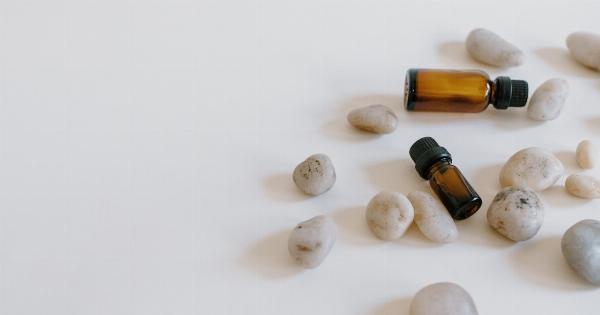Asthma is a chronic respiratory condition that affects millions of people worldwide. It is characterized by inflammation and narrowing of the airways, causing symptoms such as wheezing, coughing, shortness of breath, and chest tightness.
While conventional medications are often prescribed to manage asthma symptoms, some individuals prefer to explore herbal remedies as a natural alternative or complementary approach to conventional treatment. In this article, we will discuss ten effective herbal remedies that have shown promise in providing asthma relief.
1. Ginger
Ginger is a commonly used herb known for its anti-inflammatory properties. It acts as a natural bronchodilator, helping to open up the airways and improve breathing.
Additionally, ginger may reduce airway inflammation, which is a significant factor in asthma symptoms. Drinking ginger tea or incorporating fresh ginger into your diet can provide mild relief from asthma symptoms.
2. Turmeric
Turmeric, a vibrant yellow spice commonly found in curry dishes, has powerful anti-inflammatory effects.
Its active compound, curcumin, has been shown to inhibit the release of pro-inflammatory substances in the body, reducing lung inflammation and improving bronchial airway flow. Adding turmeric to your meals or taking turmeric supplements may help alleviate asthma symptoms.
3. Garlic
Garlic is renowned for its immune-boosting properties and ability to reduce inflammation. It contains compounds that have been shown to relax the smooth muscles of the airways, making breathing easier for individuals with asthma.
Raw garlic is the most potent form, but if the taste is too strong, garlic supplements are also available.
4. Licorice Root
Licorice root has long been used in traditional medicine for its many health benefits. It possesses anti-inflammatory and expectorant properties, helping to soothe the respiratory system, reduce inflammation, and ease asthma symptoms.
Consuming licorice root as a tea or using licorice root supplements may be beneficial for individuals with asthma.
5. Eucalyptus
Eucalyptus is a popular herb known for its refreshing scent and potential respiratory benefits.
The essential oil derived from eucalyptus leaves contains a compound called eucalyptol, which has been found to have anti-inflammatory properties and can aid in opening up the airways, promoting easier breathing. Steam inhalation with eucalyptus oil or using eucalyptus-based products may provide relief during asthma attacks.
6. Butterbur
Butterbur, also known as Petasites hybridus, is a herb native to Europe and Asia. It has been traditionally used to manage respiratory conditions like asthma and allergies.
Butterbur contains active ingredients that inhibit the production of leukotrienes, chemicals that contribute to inflammation and constrict the airways. Butterbur supplements have been shown to reduce asthma symptoms and may be particularly beneficial for allergic asthma sufferers.
7. Mullein
Mullein, scientifically known as Verbascum thapsus, has been used for centuries to treat various respiratory ailments. It possesses expectorant properties, helping to loosen mucus and clear the airways.
Mullein tea or herbal supplements made from the leaves or flowers of the mullein plant may alleviate coughing and congestion associated with asthma.
8. Boswellia
Boswellia, also known as Indian frankincense, is a resin extract derived from the Boswellia serrata tree. It has potent anti-inflammatory properties due to its active components called boswellic acids.
These acids inhibit the production of inflammatory molecules, potentially reducing airway inflammation and improving breathing in individuals with asthma. Boswellia supplements can be found in health stores and may be beneficial as an adjunct to asthma management.
9. Astragalus
Astragalus is an herb widely used in Traditional Chinese Medicine for its immune-boosting effects. It has been found to have anti-inflammatory and bronchodilatory properties, making it potentially beneficial in managing asthma symptoms.
Astragalus root can be brewed into a tea or taken as a supplement to support respiratory health.
10. Nettle Leaf
Nettle leaf, derived from the stinging nettle plant, has been traditionally used to treat asthma symptoms. It contains bioactive compounds that possess anti-inflammatory properties, which may reduce the severity of asthma attacks.
Nettle leaf can be consumed as a tea or taken in capsule form as a natural asthma remedy.
Conclusion
While these herbal remedies show promise in providing asthma relief, it is essential to remember that every individual’s response may vary.
It is advisable to consult with a healthcare professional before incorporating any new herbs or supplements into your asthma management plan, especially if you are currently taking prescribed medications. It is also crucial to monitor your symptoms and seek medical attention if they worsen or become severe.






























